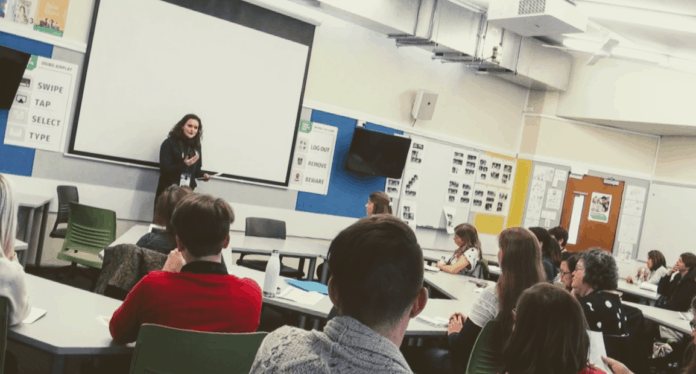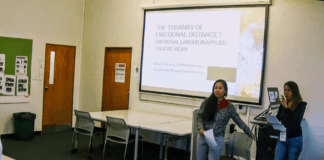I will explore how postcolonial perspectives on culture and migration can inform the development of a process drama-based Applied Theatre practice that encourages social responsibility and critical citizenship amongst young people. Developing such pedagogical strategies is of utter importance in the wake of growing national populist sentiment spreading across the world. As we are confronted with the so-called global refugee crisis and increasing public ‘ressentiment’ towards ‘foreigners’ in the face of international Islamist terror, fundamental nationalisms incite tyrannies of distance through processes of excluding ‘others’. How can aesthetic experiences shift perspectives by encouraging young people to critically explore attitudes and behaviours associated with Othering? How can such an embodied pedagogy of inclusion provoke them to reflect on ‘Others” displacement through forced migration, and on the alienation and fear that lead many members of host communities to feel contained within their own homelands from which they feel to be forcedly estranged?
I am a doctoral candidate at the University of Auckland’s Critical Research Unit in Applied Theatre. Informed by my current work with Applied Theatre Consultants Ltd., in the framework of which I facilitate Theatre-in-Education workshops to encourage discussion about domestic violence among young people, and my drama pedagogy-informed practice as an intercultural immersion language teacher, my research investigates how process drama can act as a critical multicultural pedagogy that fosters young people’s democratic citizenship. Particularly, I am interested in how process drama can take young people beyond mere empathetic identification with so-called Others by creating a forum in which conceptions of culture and phenomena of xeno- and islamophobia can be explored. How can such an embodied inquiry provoke critical reflection on the ubiquitous ‘ressentiment’ towards refugees that has emerged around the globe in recent years in the face of the so-called refugee crisis and the rise of Islamist terror?









